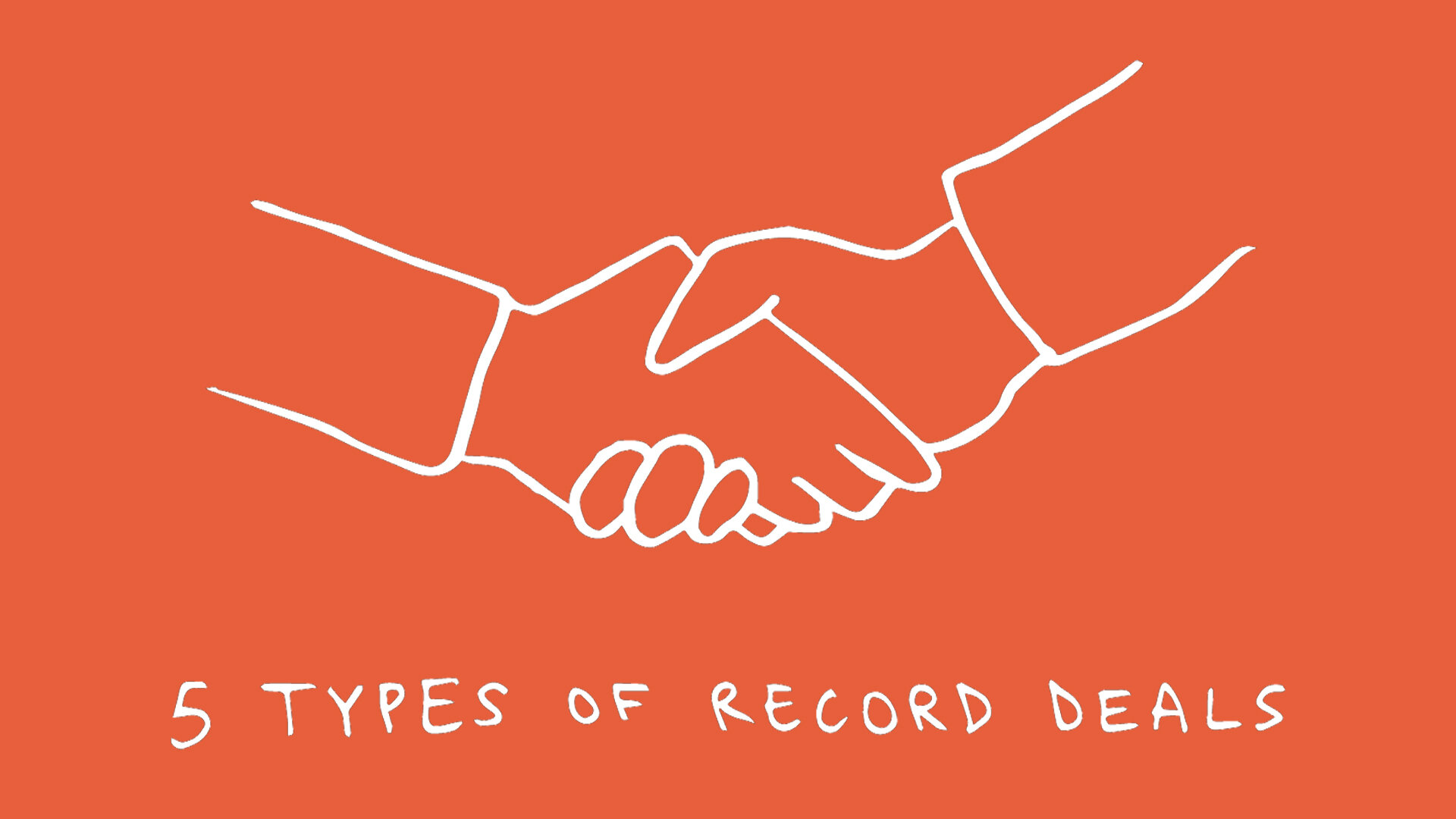5 Types of Record Deals
Were you up late the other night reading Kanye’s tweets about his deals with Sony & Universal? Have you ever wondered what type of agreement Russ had, convincing him to sign to a major label? Today, I want to spend some time breaking down the typical types of record deals you might see into five basic categories.
Traditional Record Deal
360 Deal
Distribution Deal
Production Deal
Profit Split Deal
While there will always be outliers, these are the typical offers you will see. As a reminder, there will never be a one-size-fits-all solution for artists. While sometimes these offers may hinder an artist or limit their creative freedom, a lot of time, they also help to open up doors or increase an artist’s platform. Check out my article last week to see if you even need a record deal in 2020.
Artwork by the talented Henry Love
Traditional Record Deal
Advance: Yes
Label/Artist Royalty Split: 80/20
Recoupable Costs: Recording
Masters Ownership: Label
The classic record deal! And probably the most common among mainstream & major label artists. In this exchange, the record label will grant the artist a hefty advance for their masters’ ownership and 80% of their royalties. I have never seen an artist get more than 22% of their royalties, and typically it’s much lower than that. Before the artist even sees a dollar of their royalties, they must recoup their advance and recording costs, which rarely ever happens.
While this may seem like a bad deal, sometimes this works out well for the artist. If they can leverage the advance & the marketing support from the label to kick start mainstream success, they have a decent chance of recouping what they owe or receiving better deal offers for their next release.
360 Deal
Advance: Yes
Label/Artist Royalty Split: 85/15
Recoupable Costs: All
Masters Ownership: Label
360 Deals are a type of partnership between the record label & the artists - where the label operates at a loss for an extended period. There is a massive investment in the artist’s development, covering all expenses, including touring, recording, marketing & more. In return, the label then gets to recoup their investment from all forms of revenue that the artist generates, including touring & merchandising. In contrast, traditional record deals recoup based on music sales.
A prominent advocate of 360 deals is Lyor Cohen, who has seen great success with 360s at Atlantic & 300 Entertainment. He strongly believes in the label investing in developing a commercially viable artist.
J. Cole is a famous artist who attributes some of his mainstream success today to the 360 deal he signed with Roc Nation back in 2009.
On the other hand, independent artist Mac DeMarco has spoken out negatively on 360 deals. He points out that no one should “not sign a 360 deal. I don’t care how much money they’re offering you, don’t [take it]. It’s an awful, awful idea... And they own your image.”
While controversial, sometimes these situations can still be beneficial to an artist. It is up to the artist & their team to ultimately decide their correct route to success.
Distribution Deal
Advance: Sometimes
Label/Artist Royalty Split: 75/25
Recoupable Costs: Recording, Marketing
Masters Ownership: Artist
Distribution deals are growing in popularity these days & are typically the least predatory offering for independent artists. Simultaneously, they also offer the least amount of resources, so it depends on what type of investment an artist believes they need to do their release justice.
Distributors focus on delivering the music to the digital service providers (DSPs) and potentially pressing physical CDs or vinyl, depending on their agreement with the artist. Distributors typically handle relationships with the representatives at the DSPs to help pitch for playlisting. Meanwhile, the marketing & promotion falls on the artist & their team to complete.
If the artist has a strong team & a hungry fan base, partnering with a distributor is an excellent way to increase leverage before seeking a traditional record deal.
Some popular distributors include EMPIRE, Sony’s The Orchard (& Steak Worldwide!).
Production Deal
Advance: No
Label/Artist Royalty Split: 50/50
Recoupable Costs: Recording
Masters Ownership: Producer
Production deals always fly under the radar but have the potential to be one of the most predatory deals to come across an artist’s desk. In a production deal, the artist usually signs a 50/50 deal with a single producer. The producer agrees to produce one or more of an artist’s album in entirety but retains 100% ownership of the master recordings.
There are several producers in the industry that are infamous for trapping up-and-coming artists into these deals. Make sure to ask around & consult friends before arriving at any agreement with these terms.
Profit Split Deal
Advance: Yes
Label/Artist Royalty Split: 50/50
Recoupable Costs: Recording, Marketing
Masters Ownership: Label
Profit split deals came back into the limelight after Russ signed a similar agreement with Columbia in 2018. In a profit split deal, the label agrees to a 50/50 royalty split with the artist and a large advance, in exchange for a recoup on all costs. So, while a traditional record deal, the label only recoups the advance & the recording costs, in a profit split deal, the label recoups advance, recording, marketing & any other expenses the artist incurs.
Profit split deals seem like the ideal offerings for both the record label (100% recoup) and the artist (50% profit split + large advance), but the answer is never that simple. It’s always important to consult an attorney & others with experience in the industry before signing any paperwork.
For an excellent & more in-depth read on these deals & how record labels generate revenue, check out this article by soundcharts. They do an excellent job visualizing the deals over time & crunching the numbers.
If you ever have any specific questions about a contract or record deal, we strongly recommend reaching out to an entertainment attorney.


